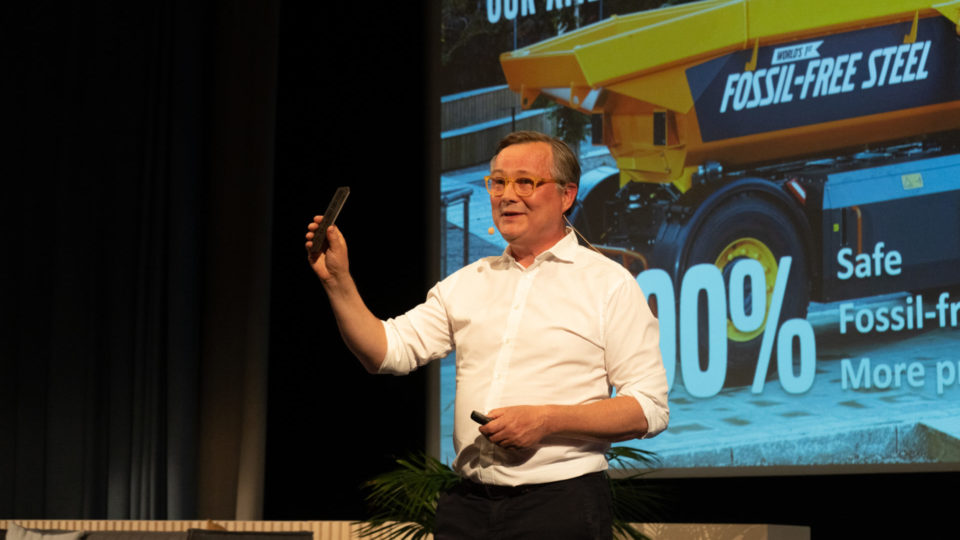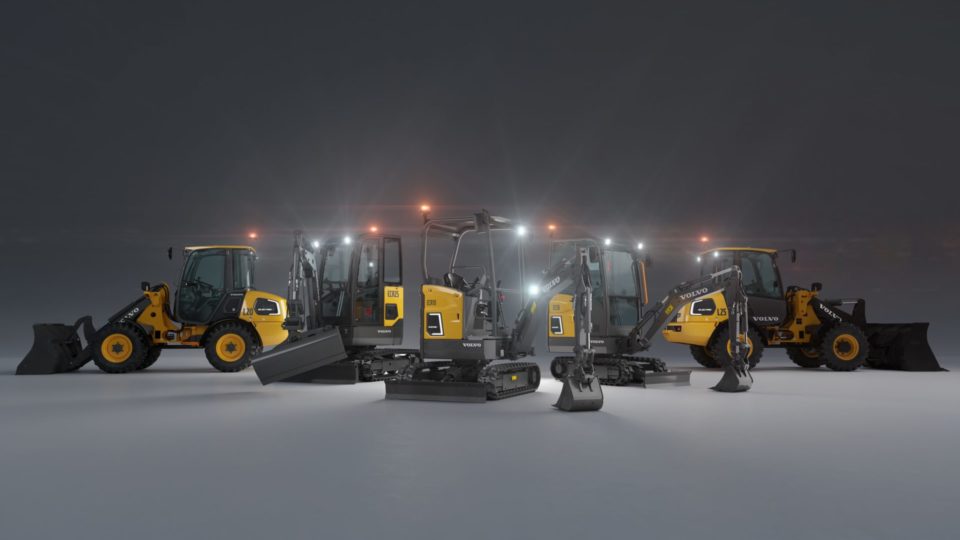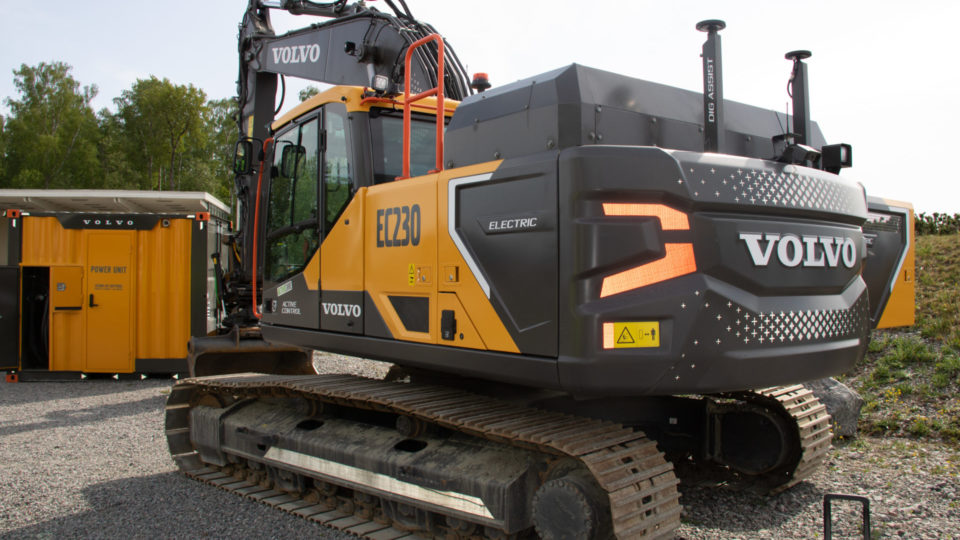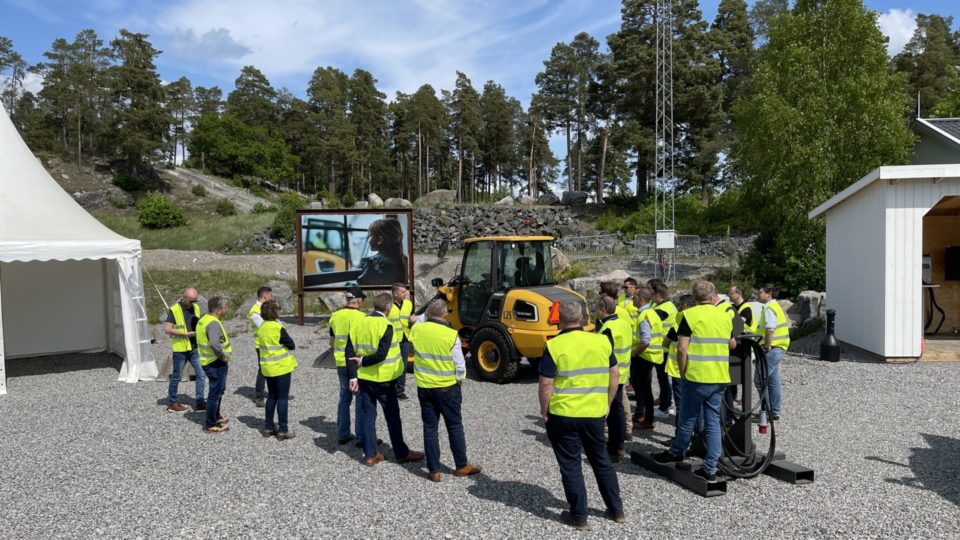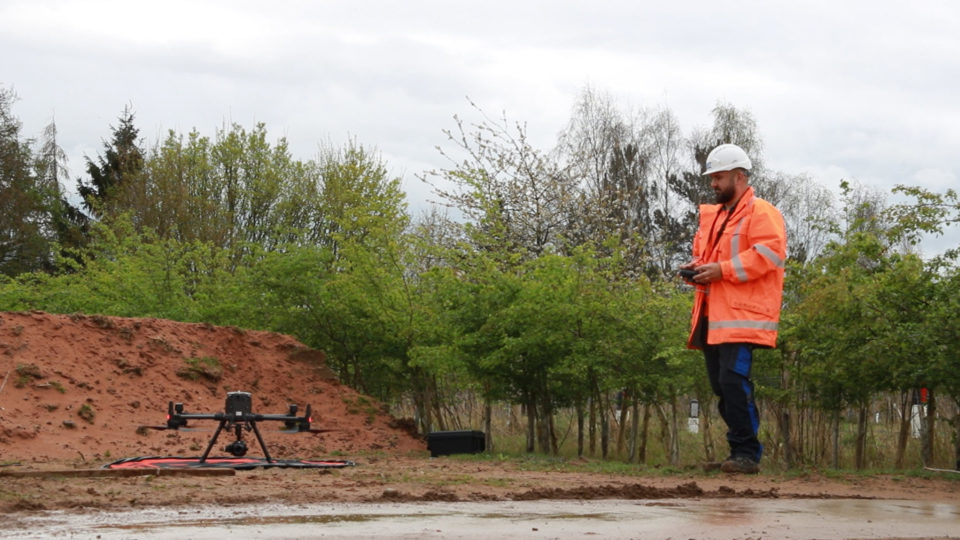To truly deliver low-carbon or zero-carbon construction requires collaboration among the entire value chain. Original equipment manufacturers (OEMs), dealers, and end-users each play a role throughout the lifecycle of construction machinery to ensure it is manufactured, delivered, used, maintained, and disposed of in the most sustainable way possible.
Volvo Construction Equipment (Volvo CE), as an OEM, has long included environmental care as one of its core values and is widely considered an industry leader when it comes to sustainability. As early as 1972, former Volvo Group CEO Pehr G. Gyllenhammar said in a historic address to the United Nations: “We are part of the problem – but we are also part of the solution.”
Volvo CE’s bold commitment to net zero value chain emissions by 2040
Volvo CE has made a Science Based Targets (SBTi) commitment to achieve net zero value chain emissions by 2040 at the latest. This is a decade earlier than the 2050 date called for in the Paris Agreement of 2015 as Volvo products have an average lifetime of 10 years and any remaining diesel-powered models will need to be phased out.
The manufacturer has also set its own interim goals to be met by 2030, including a 50% reduction in emissions from its operations, facilities, and manufacturing processes, and for 35% of its machine sales to be zero-emission electric models.
Volvo CE already made great strides towards carbon neutrality in its manufacturing in 2014, when its articulated hauler plant in Braås, Sweden, became the world’s first construction equipment production facility to be powered entirely by renewable energy. Since then it has continued to reduce emissions and waste from its manufacturing facilities, warehouses, workshops, and offices around the globe.
Thanks to its early work on developing concept electric machines as far back as 2012, Volvo CE was able to successfully contribute to the creation of the world’s first emission-free quarry in 2018, and today boasts one of the largest electromobility ranges in the construction equipment industry.
The manufacturer has worked closely with its dealer partner SMT to launch five fully electric compact wheeled loaders and excavators in Great Britain and is now starting to introduce larger electric models to the market, such as the 20 t L120H Electric conversion wheeled loader and the 23 t EC230 Electric crawler excavator.
“Over the last few years, Volvo electric compact machines have proven on customer sites up and down Great Britain, that they can deliver the same reliability and performance as their diesel counterparts with the added benefits of zero emissions, quiet operation, and simpler maintenance. We are really excited to expand our e–mobility offer into the mid-sized ranges too and further support customers on their decarbonisation journeys,” says Shaun Sisterton, E-mobility Business Manager at SMT GB.
SMT GB’s journey towards sustainable operations
Like Volvo CE, SMT also aims to be a pioneer for net zero and climate change positivity in Great Britain and has set its own ambitious targets to reduce emissions and waste from its operations. Since 2019, the dealer has decreased its scope 1 and 2 emissions by 30% (1,038 t of CO2e). That includes direct (scope 1) emissions from company-owned vehicles and heating processes, and indirect (scope 2) emissions from electricity purchased to heat, cool, ventilate, and power its facilities. Although these scope 2 emissions are reported using the UK grid averages, 100% of the electricity purchased by SMT is generated from renewable energy sources under a renewable energy guarantee of origin (REGO) green tariff.
In Great Britain, SMT replaced its fleet of 75 company cars with electric vehicles (EVs) in 2021, saving an annual average of 141,771 l of fuel and 375 t of scope 1 carbon dioxide equivalent compared to a 2019 baseline. Since 2022, the dealer has also delivered all combustion engine models with the fuel tanks ready-filled with HVO (hydrotreated vegetable oil), saving an additional 318 t of CO2 annually and preventing further CO2 from being released into the atmosphere as the machines complete their first jobs for customers on site.
Furthermore, the company has made significant efforts this year to improve the performance of its commercial vehicle fleet, using telematics to focus on driver behaviour and minimise unnecessary travel. As a result, SMT has achieved a 13% increase in fuel efficiency, attributed to a 30% reduction in idling as well as a 5% improvement in driving style and an 8% better speed scores. The company anticipates further improvements as new fleet vehicles, equipped with anti-idling and fuel efficiency features, are introduced in late 2023.
SMT is planning to invest in renewable and low carbon energy technologies at some of its facilities in Great Britain in 2024 and has been progressively reducing energy demand through energy efficiency measures. This campaign has helped to reduce energy demand in facilities by 30% in the first half of 2023 compared to the 2019 baseline year.
In addition, the dealer has made a concerted effort to eliminate or reduce the use of single use plastics in its operations wherever possible. The bulk AdBlue storage tank installed in the workshop at Immingham in 2020, for example, has replaced 3,000 plastic containers annually. Previously, two to three plastic containers of AdBlue were manually poured into each machine. Now, the new pump system means there is no plastic waste to dispose of, while saving time and reducing the risk of spillage. 208 l hydraulic oil drums have similarly been introduced to replace 20 l plastic containers.
Across the business since 2020, 124 miles of vinyl tape have been replaced with a paper alternative, 15,100 plastic bags per year have been swapped for padded paper packaging, and 60,000 plastic cups have been saved annually. Single use rags and spill mats have been replaced with washable wipers and spill mats, which are also higher in quality than the original products in use. This has reduced hazardous waste arisings by 18% or 8 t compared to the previous year, despite stronger business activity.
The next waste reduction initiative planned is to replace single use cardboard boxes with reusable tote boxes for all internal parts deliveries. This will make a significant difference to the company’s waste arisings and help to reduce scope 3 carbon emissions.
“I am immensely proud of our team’s achievements. Their relentless pursuit of opportunities to reduce emissions and waste in our everyday operations reflects their commitment to our targets and passion for creating a better future for us all,” says Paul Burr, QESH Manager at SMT GB.
Engaging end-users and policymakers from across the construction industry
SMT is also supporting customers to make greener choices for their fleets and sites and is guiding them through the process. In May 2023, for example, the dealer organised a special decarbonisation event at the Volvo CE headquarters and customer centre in Eskilstuna, Sweden, for 50 representatives from across the construction industry in Great Britain, including major contractors, strategic accounts, and infrastructure policy makers.
All participants committed to engaging in open discussions about the challenges they encounter in their daily operations, carbon reduction strategies, and the various future technology paths, as well as what Volvo CE and SMT can offer today to help construction companies reach their targets.
The guests had the opportunity to explore a lineup of cutting-edge products, such as TARA, the autonomous electric haulage system for quarries and mines. They also got behind the controls of the electric compact range and the EC230 Electric excavator for some hands-on experience.
Beyond these exciting machines, the event covered training with simulators and the EcoOperator program, consultancy services including Site Simulation, as well as digital offerings, including Connected Map and Efficient Load Out. To top it off, the participants delved into fleet management and maintenance with MySMT and ProCare.
While the travel to Eskilstuna inevitably generated carbon emissions, SMT recognises the importance of providing customers with first-hand exposure to groundbreaking low-carbon technologies and showcasing Volvo CE and SMT’s combined commitment to sustainability. As a result, the company took proactive measures to assess the emissions produced by the event and invest in carbon offset projects.
“The event enabled us at Volvo CE and SMT to engage with the industry early on in its transformation and build trust in us as the credible future partner of choice for our customers on this journey. We received very positive feedback from those attending that we are showing belief, leadership, commitment, and investment in this once-in-a-lifetime industry shift,” says Phil Battle, Director of Strategic Accounts at SMT GB.
Darren Fitch, Head of Market Area GB, Benelux, Ireland, and Iceland at Volvo CE adds: “It has been a great initiative to jointly engage with key decision makers that will influence the speed and success of the zero-emission transformation in Great Britain. We had a fantastic dialogue over the two days and it was made much richer by having a full cross-section of stakeholders from the construction value chain together.”
Reducing emissions from diesel machines today and preparing for the switch to electric tomorrow
SMT understands that the shift towards electric machinery isn’t an overnight switch, but rather a gradual transition. The dealer is currently focused on aiding customers in minimising the environmental impact of using and maintaining their existing diesel-powered machines that will continue to operate for many years to come.
This is achieved through enhancing operator or site efficiency, as well as through used parts and equipment rebuilds. In addition, when a customer is ready to dispose of a machine, SMT is committed to helping them navigate the recycling process, ensuring the most sustainable end-of-life possible. The work undertaken at SMT’s Remarketing Centre at Bruntingthorpe is helping to ensure that materials are kept in the value chain for longer by offering quality used parts and equipment for those customers who are interested in minimising their environmental impact and carbon footprint.
Enhancing the efficiency of diesel machines isn’t just about saving on fuel and reducing emissions in the present, however. It’s also about laying the groundwork for that eventual switch to battery-electric equipment. With battery-electric machines, operators cannot simply afford to be inefficient as it directly impacts battery range and necessitates less-than-optimal charging routines.
“We at Volvo CE and SMT are not just leading the industry’s journey towards net zero, we’re taking our customers along with us. We’re actively listening, understanding, and collaborating to foster a more sustainable construction industry throughout the entire value chain. Together, we are building a greener future,” Phil concludes.
For further information, please contact:
Marketing Department
E-Mail: Marketing.gb@smt.network


